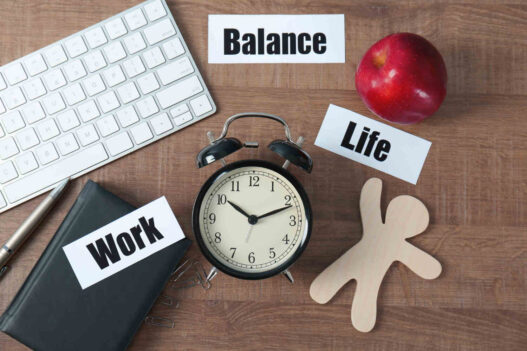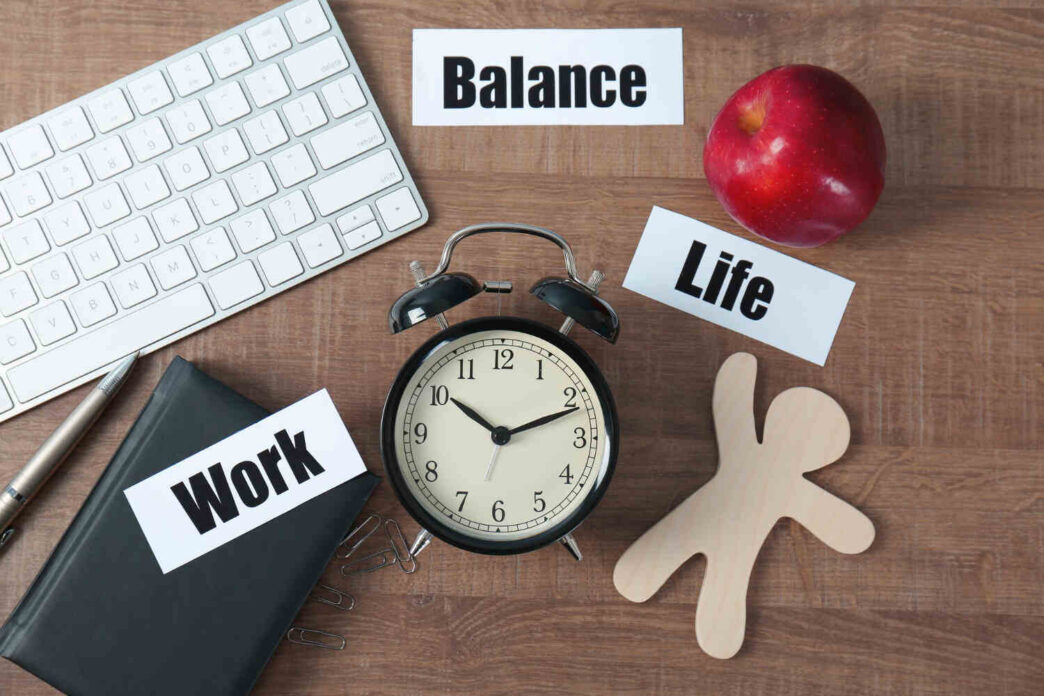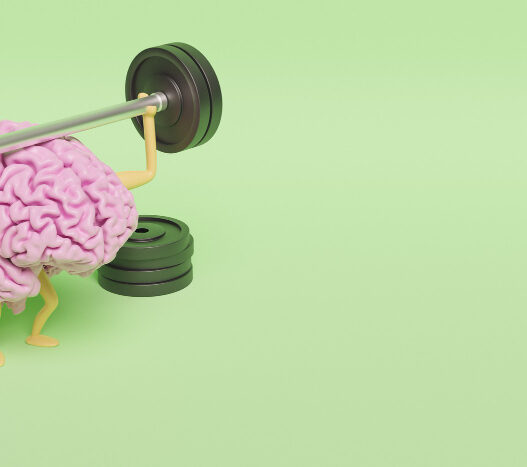I worked in Human Resources Management (HRM) for over a decade. What I liked about the functions of HRM is the idea that we could truly be employee advocates. While Human Resources and HRM is meant to protect the organization, it was also designed to help enhance the employment experience (i.e. benefits, employment, training, etc.) as one of the functions of HRM. While I never woke up as a child and thought, I would love to work in Human Resources one day, nevertheless, the expectations from society, my skills and abilities, my desire to help others, and money, all led me into the spider web that is human resources and the functions of HRM.
Work-life balance is not a new concept. It became a buzzphrase years ago and it is a phrase that we currently throw around like somehow the majority have attained it. The concept sounds great and would be a breakthrough for overall health, but the reality is, that the majority have not attained it and never will.
First, lets look at why work life balance is important. Having a balance between your work responsibilities and your home life impacts your overall health. While it affects everyone differently, because we are different, the stress of feeling overworked, and overstressed, and the toll those play individually or together, can lead to exhaustion, burnout, and cause damage to your emotional, mental, and physical health.
Second, let’s look at some of the root causes. As a society, we do not do a good job at setting healthy boundaries are work or at home. The idea that you should keep your home life out of work or work out of your home life is laughable given the overlap and influence both have on how we feel during any given day. I once heard someone say that every day we metaphorically sit behind our desks and learn a little more to accept the world around us the way it is. While this is tragic, it is true. We become conditioned. Conditioned to accept negativity and mistreatment, mostly out of fear.
Every day I heard employees who were concerned they would lose their job for a multitude of reasons. Anything from their manager not liking them because they had an idea, to leaving right at 5:00 PM when they were scheduled off so they could make their daughter’s soccer game, to an endless number of other reasons. This fear can cause stress and anxiety and that stress and anxiety causes more fear. It becomes a vicious cycle of constructing doubt in people around you, especially at work, and then taking all of that emotional and mental baggage home. Then as that fear takes over, the employee begins to feel the stress financially because if they lose their job, how do they live. It leaves an employee feeling exhausted and burnt out and we have not begun to add in the actual work they are doing.

Beyond these fears, many employees try to overcompensate by saying “yes” more to their supervisor when it comes to taking on more responsibility and/or tasks. Then the lack of boundaries causes more stress. Why? Because many employers and employees do not understand the difference between flexibility and availability. Being flexible when work needs to be done is healthy. Making yourself available all the time for after-hours emails, phone calls, and “work”, while it usually starts slow, can build to a point where the employee never feels off work, even when they are. When an employee reaches this point, they usually feel stuck in a place there is no escape from.
When an employee comes home exhausted more and more and already dreading the next day, stress begins to take a toll on our health. In Human Resources, I have seen employees have mental breakdowns, panic attacks, gain extreme weight, lose extreme weight, and everything in between.
So how do we fix this? Well, in short, employers know this is a problem. That is why Employee Assistance Programs (EAP) have grown in popularity as functions of HRM. As a former Director and Vice President of Human Resources, I believe the employee assistance program, EAP is a great benefit, however, it does not actually fix the problem because it is typically only utilized as a reaction.
The obstacle is that all employees and employers are not made the same. Everyone has their own unique experience, but the trends I saw in Human Resources lead back to three main problems.
One, employers are not clear on the expectations of the job in job postings or interviews as the functions of HRM. Have you ever interviewed for a job and left thinking, wow, that will be the perfect job! Then started that job and a few days, weeks, or months later, realize the job isn’t what you thought you applied for.
Two, HRM managers do not have the skills or the courage to communicate effectively with employees as their role of fulfilling the functions of HRM. When there is unclear communication, people usually fill in the gaps with their fears.
Three, employers and employees or functions of HRM do not put a priority on health and wellness. They talk about and form committees that are ineffective, but they do not have good support and follow-up, meaning their “talk” does not match their “actions”. They encourage behaviors that are healthy, but they do not build trust with the employee for the employee to take advantage or they do not offer something for everyone. Thus, as a function of HRM, they fail.
I have experienced this both as an employee and as a representative of an employer. From both of those perspectives, I do not think there is a health and wellness program design that will fix the work-life balance problem in our society. I am not taking away from those programs, they are beneficial, and I believe that all employers should dedicate more emphasis to them, but the true problem is time and energy. Employees are burnt out as a whole and not just with the tasks they perform at work. Their jobs, their personal lives, their goals, their insecurities, the pandemic, and everything else we as employers may not know that they are going through, all of that has worn people down and then they spend valuable time, in many cases, commuting to work, only to feel fearful, overwhelmed, and underappreciated at work.
Stress will always be part of life, but as employers or HRM managers, we must get better at communicating appreciation and placing value on employees’ overall health (emotional, physical, mental, etc.). And yes, we do not get Stress leave from work. Many of our employees are struggling and when you struggle in even one area, it affects all. For example, if as an employee I feel underappreciated that can lead to work burnout. When I am burnt out at work, I am exhausted physically and mentally at home. When I am exhausted physically and mentally, I do not exercise, I eat an unhealthy or yo-yo diet, and when I still gain weight, I feel insecure. When I feel insecure, I react and respond to those around me, and then my personal life suffers. When my personal life suffers and I go to work the next day, I am not as productive, and it becomes a vicious cycle.
I do not believe that you can separate physical health and fitness from your emotional or mental health. Everything is intertwined and when one is off, it affects the rest. Until employers can give their employees a sense of appreciation for their work and flexibility and respect their time away from the office, employees will continue to reach burnout and feel as though they have no work-life balance in record numbers.
Employers need to ask themselves whether are we providing the best environment for each employee and whether they are defining the functions of HRM clearly. That includes the relationships each employee has with others, especially their supervisor. Employers also need to take a deeper look at who they have in supervisor roles and whether those individuals are leaders who value others and provide support and guidance to ensure a positive experience that will lead to better productivity.
Employees need to ask themselves if they are in an environment where they can be the best version of themselves.
I feel so strongly about work-life balance. I quit my Vice President of Human Resources role and started my own health and wellness business that offers corporate wellness program design and implementation and for every single client the biggest missing piece is trust and communication between employee and employer. It goes beyond wellness and is a fundamental core issue that employers need to analyze and address. If they don’t, their top talent will continue to burnout and leave, and they will continue to spend time and money to replace them.
It is never too late or too hard. Believe in yourself, accept responsibility for your actions and choices, and put in the work to make changes, whatever those changes are.
If you’re currently in a job search, try looking for your dream job on Jooble!

Kimberly Dyonne, M.P.A. is the Founder of ENVDR Wellness Co., & Former Vice President, Human Resources, Kansas city, Missouri area, United States. She has over ten years of experience as a leader in Human Resources. She is an avid ice hockey player and athlete with a passion for wellness and physical fitness. In 2021, she left the Human Resources field to spend more time building her own wellness company, ENDVR Wellness Co.











